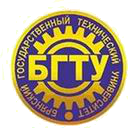Bryansk, Bryansk, Russian Federation
Bryansk, Bryansk, Russian Federation
Bryansk State Technical University (department «CTS», Post graduate student)
Bryansk, Bryansk, Russian Federation
An analytical study of the editorial and publishing policies of journals has made it possible to substantiate a group of qualitative criteria that determine the formal and content requirements for scientific manuscripts in the process of making decisions about their publication. Considering the standards that regulate publishing processes and bibliographic business allows identifying the main elements of the publishing design of articles and the editor-in-chief, editorial board and editorial team’s requirements for manuscripts. On the ground of the identified typical stages in selecting manuscripts for publication, an expert decision support system has been developed and implemented for a formalized assessment of the scientific article quality based on standardized peer review results. The proposed expert system makes it possible to reduce the reviewers’ subjectivity level due to the review process standardization and to select the best articles for publication in the journal on the example of the online electronic edition “Ergodesign”.
article quality, quality measures, membership functions, threshold values, peer review, information environment ergonomics
1. Bredikhin S.V., Lyapunov V.M., Shcherbakova S.G. Dynamics of the Growth of the Citation Network of Scientific Articles. Problems of Informatics. 2020;1:5-20. doi:https://doi.org/10.24411/2073-0667-2020-10001.
2. Kirichek A.V., Morozova A.V., Spasennikov V.V. Re- view as a Procedure for Expert Evaluation of the Quality of Sci- entific Articles. Ergodesign. 2018;2(02):3-7. doi:https://doi.org/10.30987/article_5bf98b622928e6.08038377.
3. Logunova O.S., Il'ina E.A., Okzhos K.M. Decision Sup-port System for Evaluating the Quality of Scientific Journal Articles. Fundamental Research. 2016;2(3):492-497.
4. Tambovtsev V.L. Reviewing in Modern Scientific Com-. munications. Science Management: Theory and Practice. 2021;3(1):35-54. doi:https://doi.org/10.19181/smtp.2021.3.1.2.
5. Lee C.J., Sugimoto C.R., Zhang G., Cronin B. Bias in Peer Review. Journal of the American Society for Information Science and Technology. 2013;64(1):2-17. doi:https://doi.org/10.1002/asi.22784.
6. Cho K., Schunn C.D., Wilson R.W. Validity and Reli- ability of Scaffolded Peer Assessment of Writing from Instructor and Student Perspectives. Journal of Educational Psychology. 2006;98(4):891-901. doi:https://doi.org/10.1037/0022-0663.98.4.891.
7. Blackburn S.L., Hakel M.D. An Examination of Sources of Peer-Review Bias. Psychological Science. 2006;17(5):378- 382. doi:https://doi.org/10.1111/j.1467-9280.2006.01715.x.
8. Bornmann L. Scientific Peer Review. Annual Review of Information Science and Technology. 2011;45(1):197-245. doi:https://doi.org/10.1002/aris.2011.1440450112.
9. Ferguson C., Marcus A., Oransky I. Publishing: the Peer-Review Scam. Nature. 2014;515(27):480-482. doi:https://doi.org/10.1038/515480a.
10. Bero L. Addressing Bias and Conflict of Interest among Biomedical Researchers (Viewpoint). Journal of American Medical Association. 2017;317(17):1723-1724. doihttps://doi.org/10.1001/jama.2017.3854.
11. Franck G. The Scientific Economy of Attention: A Novel Approach to the Collective Rationality of Science. Scien- tometrics. 2002;55(1):3-26. doihttps://doi.org/10.1023/A:1016059402618.
12. Okzhos K.M., Il'ina E.A. Characteristics and Features of a Decision Support System for Automated Information Envi- ronment of the Scientific Journal “Ab ovo ...”. Actual Directions of Scientific Researches of the XXI Century: Theory and Prac- tice. 2015;3(8-1) (19-1). doi:https://doi.org/10.12737/15378.
13. Kondratenko S.V., Kuzmenko A.A., Spasennikov V.V. Analysis of Invention Patenting Dynamics in Sphere of Human Life Needs Satisfaction. Bulletin of Bryansk State Technical University. 2017;4(57):183-191. doi:https://doi.org/10.12737/article_5a02fa1358eb23.38551383.
14. Collier K, Stemmle L., Grigston J. Systems and Meth-ods for Evaluating Technical Articles. Patent USA US20140087354, MPK G06F17/00, no US13/665,304, 2014.
15. Arnaout R., Kaufman R., Goodrich J., Okaya K. Sys-tem and Method for Facilitating the Advancement of a Research Article from Conception to Post-Publication. Patent USA US 20130332242, MPK G06Q10/06, no US13/915,112. Copyright Clearance Center; 2013.
16. Syunev V.S., Marakhtanov A.G., Banquet V.P., Kuk-harskaya A.A., Krosov A.V. The Certificate on Official Regis-tration of the Computer Program in Russia “Electronic Scientific Journal”, no 2013611739. FSEIHVE Petrozavodsk State University; 2013.
17. Okzhos K.M., Il'ina E.A. The Certificate on Official Registration of the Computer Program in Russia “Electronic Scientific Journal”, no 2015617499. FSEIHVE Nosov Magnito- gorsk State Technical University; 2015.
18. Orlov A.I. Theory of Expert Assessments in our Country. Polythematic Network Electronic Scientific Journal of Kuban State Agrarian University (Scientific journal of KubSAU). 2013;93:1-11.
19. Spasennikov V.V. Scientific Article as a Means of Effec- tive Communication: Recommendations for Writing and Format- ting. Ergodesign. 2020;2(08):51-57. doi:https://doi.org/10.30987/2658-4026- 2020-2-51-57.
20. Orlov A.I. On Developing Statistics of Non-Numerical Nature Objects. Polythematic Network Electronic Scientific Journal of Kuban State Agrarian University (Scientific journal of KubSAU). 2013;93:41-50.
21. Leydesdorff L., Rafols I. Indicators of the Interdiscipli- narity of Journals: Diversity, Centrality, and Citations. Journal of Informetrics. 2011;5(1):87-100. doihttps://doi.org/10.1016/j.joi.2010.09.002.
22. Kuzmenko A, Dergachev K, Spasennikov V. Ergonomic Support for Logo Development Based on Deep Learning. In: Proceedings of the 30th International Conference on Computer Graphics and Machine Vision: CEUR Workshop Proceedings. 30 GraphiCon; 2020. doi:https://doi.org/10.51130/graphicon-2020-2-4-42.
23. Spasennikov V., Androsov K., Golubeva G. Ergonomic Factors in Patenting Computer Systems for Personnel's Selection and Training. In: Proceedings of the 30th International Confe- rence on Computer Graphics and Machine Vision: CEUR Work- shop Proceedings. 30: GraphiCon; 2020. doi:https://doi.org/10.51130/graphicon-2020-2-4-51.
24. Khosrowjerdi M., Bornmann L. Is Culture Related to Strong Science? An Empirical Investigation. Journal of Infome- trics. 2021;15(4):1-15. doi:https://doi.org/10.1016/j.joi.2021.101160.
25. Parpara O.A. Decision-Making Algorithm at the Edi- tor’s Assessing a Scientific Article Manuscript for the Text Ori- ginality Using the “Anti-Plagiarism” System. Almanac of Clini- cal Medicine. 49(5):356-357. doi:https://doi.org/10.18786/2072-0505-2021-49- 055.
26. Zhmud V.A. Modern Scientific Expertise. Automation and Software Engineering. 2021;2(36):50-58.













